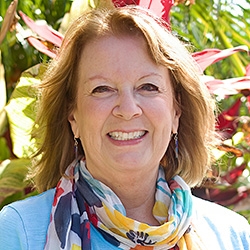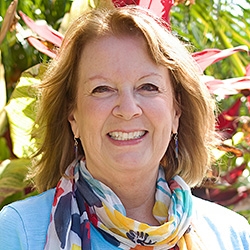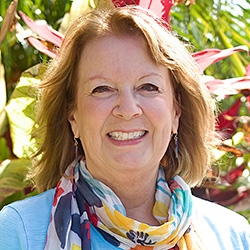
NVC Resources on Conflict
-
Kelly Bryson, veteran and loved CNVC Certified Trainer, brings decades of experience to help you jumpstart your Mastery of Fear by using his unusual blend of experiential exercises, humor, empathy, original songs and stories, transformational truth telling, creativity and FRED (Frequency Resonation Energy Dynamics).
-
NVC practice is based on several key assumptions and intentions. When we live based on these assumptions and intentions, self-connection and connection with others become increasingly possible and easy, helping us contribute to a world where everyone’s needs are attended to peacefully.
-
Trainer Tip: Q: How do we get the love we want? A: Ask for it.
-
Trainer Tip: We can expand our connection to humanity by considering the many strategies people use to meet our common needs.
-
Jim and Jori Manske share strategies for employing gratitude to create more joy in life, jettisoning the fear of asking for what you want, and welcoming feedback no matter how it is delivered.
-
Learn when to use the two types of requests in the practice of Nonviolent Communication: Action Requests and Connection Requests. Both are important when working through conflict or difficult situations and for building connection.
-
One of the premises in NVC is that behind all behavior and expressions are Universal Human Needs as the deeper motivators. And one of the key distinctions in NVC is that between Needs and Strategies. Try Alan Seid's exercise called "Peeling the Layers of the Onion, " a process for uncovering these needs — the deeper motivations — that underlie words and behaviors we may find disturbing or puzzling.
-
Are you eager to translate your vision of a world where everyone’s needs matter into a tangible reality? Do you long to discover your unique role in responding to the challenges of our times? If, so join Miki for 12 sessions that will propel you on your way!
-
Trainer Tip: What are your goals, hopes and dreams? For greater success it’s important to make your goals concrete, specific, and focused on what do you want (rather than what you don't want).
-
How we treat ourselves when we fall short of our own ideals, desires and hopes can profoundly affect the quality of our lives. Learn how to identify your triggers and reactions, to mourn falling short, and to practice self-connection and self-empathy.











